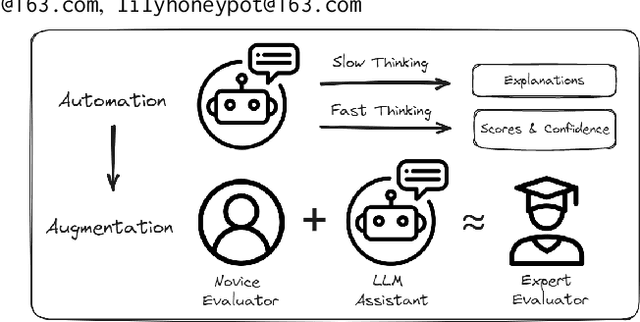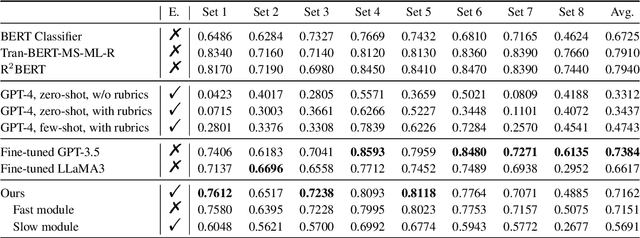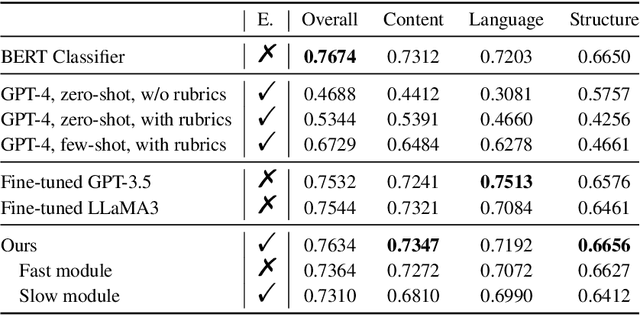Qi Fu
LongBench Pro: A More Realistic and Comprehensive Bilingual Long-Context Evaluation Benchmark
Jan 06, 2026Abstract:The rapid expansion of context length in large language models (LLMs) has outpaced existing evaluation benchmarks. Current long-context benchmarks often trade off scalability and realism: synthetic tasks underrepresent real-world complexity, while fully manual annotation is costly to scale to extreme lengths and diverse scenarios. We present LongBench Pro, a more realistic and comprehensive bilingual benchmark of 1,500 naturally occurring long-context samples in English and Chinese spanning 11 primary tasks and 25 secondary tasks, with input lengths from 8k to 256k tokens. LongBench Pro supports fine-grained analysis with task-specific metrics and a multi-dimensional taxonomy of context requirement (full vs. partial dependency), length (six levels), and difficulty (four levels calibrated by model performance). To balance quality with scalability, we propose a Human-Model Collaborative Construction pipeline: frontier LLMs draft challenging questions and reference answers, along with design rationales and solution processes, to reduce the cost of expert verification. Experts then rigorously validate correctness and refine problematic cases. Evaluating 46 widely used long-context LLMs on LongBench Pro yields three findings: (1) long-context optimization contributes more to long-context comprehension than parameter scaling; (2) effective context length is typically shorter than the claimed context length, with pronounced cross-lingual misalignment; and (3) the "thinking" paradigm helps primarily models trained with native reasoning, while mixed-thinking designs offer a promising Pareto trade-off. In summary, LongBench Pro provides a robust testbed for advancing long-context understanding.
Quest: Query-centric Data Synthesis Approach for Long-context Scaling of Large Language Model
May 30, 2024



Abstract:Large language models, initially pre-trained with a limited context length, can better handle longer texts by continuing training on a corpus with extended contexts. However, obtaining effective long-context data is challenging due to the scarcity and uneven distribution of long documents across different domains. To address this issue, we propose a Query-centric data synthesis method, abbreviated as Quest. Quest is an interpretable method based on the observation that documents retrieved by similar queries are relevant but low-redundant, thus well-suited for synthesizing long-context data. The method is also scalable and capable of constructing large amounts of long-context data. Using Quest, we synthesize a long-context dataset up to 128k context length, significantly outperforming other data synthesis methods on multiple long-context benchmark datasets. In addition, we further verify that the Quest method is predictable through scaling law experiments, making it a reliable solution for advancing long-context models.
From Automation to Augmentation: Large Language Models Elevating Essay Scoring Landscape
Jan 12, 2024



Abstract:Receiving immediate and personalized feedback is crucial for second-language learners, and Automated Essay Scoring (AES) systems are a vital resource when human instructors are unavailable. This study investigates the effectiveness of Large Language Models (LLMs), specifically GPT-4 and fine-tuned GPT-3.5, as tools for AES. Our comprehensive set of experiments, conducted on both public and private datasets, highlights the remarkable advantages of LLM-based AES systems. They include superior accuracy, consistency, generalizability, and interpretability, with fine-tuned GPT-3.5 surpassing traditional grading models. Additionally, we undertake LLM-assisted human evaluation experiments involving both novice and expert graders. One pivotal discovery is that LLMs not only automate the grading process but also enhance the performance of human graders. Novice graders when provided with feedback generated by LLMs, achieve a level of accuracy on par with experts, while experts become more efficient and maintain greater consistency in their assessments. These results underscore the potential of LLMs in educational technology, paving the way for effective collaboration between humans and AI, ultimately leading to transformative learning experiences through AI-generated feedback.
 Add to Chrome
Add to Chrome Add to Firefox
Add to Firefox Add to Edge
Add to Edge